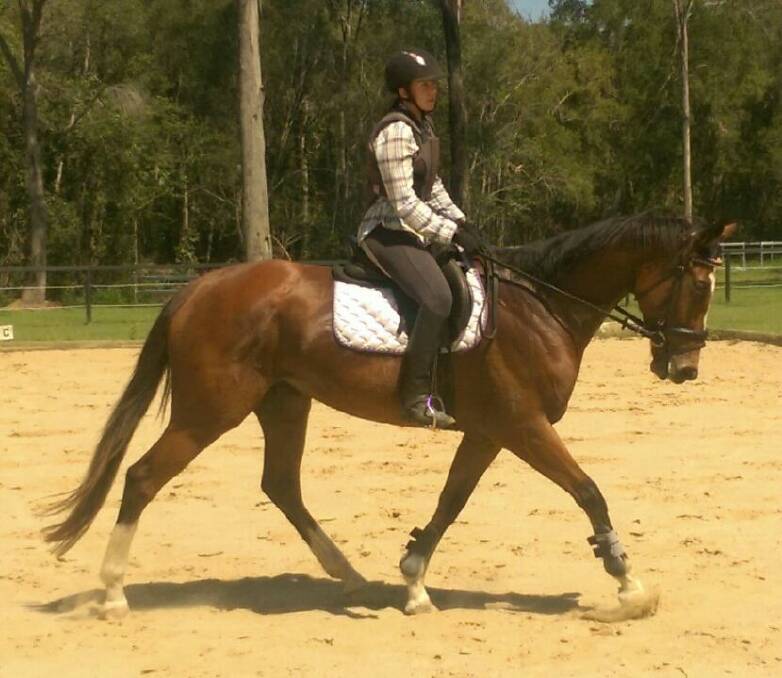
Allegations of harmful reactions to the Hendra virus vaccine and risks to veterinarians treating unvaccinated horses will be aired at a public parliamentary hearing in Jimboomba on July 5.
The hearing at Emmaus College school hall will take place from 2pm – 4pm, and is one of six public hearings for a parliamentary inquiry.
On February 25 the Legislative Assembly agreed to a motion that the Agriculture and Environment Committee inquire into and report on the Hendra virus (HeV) EquiVacc® vaccine and its use by veterinary surgeons in Queensland.
Chair of the parliament’s agriculture and environment committee, Glenn Butcher, said the committee’s hearings will be a crucial phase of its inquiry into the Hendra virus vaccine and its use by Queensland veterinarians.
“We will use the hearings to try to separate the myths from the facts for the inquiry,” he said.
The inquiry has attracted a lot of interest with almost 300 written submissions received from scientific experts, equine groups, veterinarians and horse owners from across Queensland, as well as interstate and abroad.
“Many submitters have criticised the vaccine, claiming adverse reactions in horses after being vaccinated. Horse owners have also questioned the ‘no vaccination – no treatment’ policies adopted by some veterinarians seeking to reduce their exposure to the virus.”
Jimboomba’s Caroline Thorpe is still reeling from the death of her four-year-old mare seven months ago, who died the night before she was due to compete in her first show.
Ms Thorpe said that when the mare contracted equine colic in November, she was outside her Hendra vaccination schedule.
“Although a vet did attend my property they were unable to perform a rectal examination or provide drenching to Sky, and she was refused admission into local vet clinics without the results of a Hendra exclusion test,” she said.
“At the time that she was due for her Hendra vaccine booster, she was taking asthma medication, so could not have the booster administered without going off the medication for a few weeks each side of the vaccination, which was not a safe option in my opinion.
“The no vaccination – no treatment policy is creating a tremendously tricky situation for horse owners.
“There is no reason, in my opinion, that Sky should have been declined drenching or a rectal examination, especially when PPE equipment was worn.
“It was awful to make such a heart-wrenching decision to put the horse to rest when you feel you haven’t been able to offer your best friend the best treatment to assist with the matter at hand, just because she could not receive the vaccine for medical reasons.”
Cedar Vale horse owner Helen Cole said she has been unable to ride her horse since she had it Hendra vaccinated at the beginning of the year.
“His nature completely changed, he became bad-tempered and temperamental,” she said.
Ms Cole said the 10 year old stallion had been perfectly healthy prior to receiving the vaccine.
“Recent blood tests have shown he has high levels of creatinine in his kidneys.”
Other submissions have criticised horse owners who choose not to vaccinate horses.
A local horse owner who chose to remain anonymous said she would not vaccinate her horses with the Hendra virus vaccine.
“There is too little scientific material and evidence on the vaccine and I have seen and heard of too many bad outcomes after horses were administered with it, to risk my animals,” she said.
Other horse owners, like Jimboomba’s Elisha Baker, said none of the horses she had Hendra vaccinated had experienced an adverse reaction.
Equine veterinarian Jenna Poppitt of All Horses Veterinarian Services, said as a three vet practice, they had administered over 3000 doses of the vaccine.
“Reactions are not very common and they’re not life-threatening,” she said.
“As with all vaccines for all species there will always be a small percentage of horses that will have an adverse reaction, but we don’t think that the very small possibility of that is reason enough not to administer the potentially life-saving vaccine.”
The hearings will give vets, horse owners and other stakeholders the chance to have their say about these and other issues.
The committee is due to report its findings by 22 August 2016.

